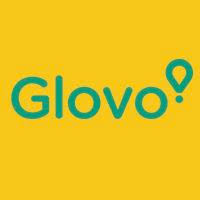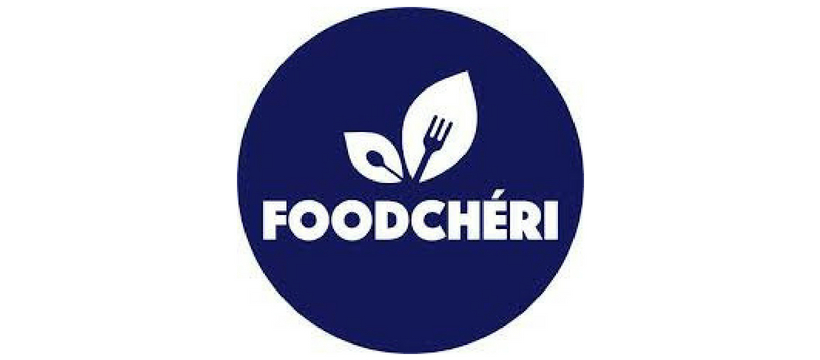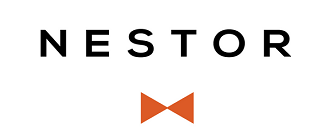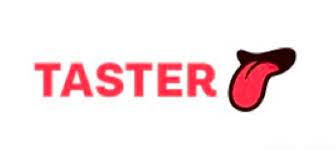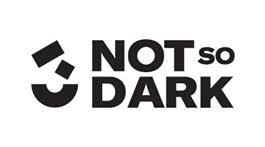Synthèse
The global market for dark kitchens, also known as ghost kitchens, is rapidly expanding, with significant growth facilitated by the COVID-19 pandemic as traditional dining experiences were restricted. In 2020, the French dark kitchens experienced a 50% increase in presence on the Uber Eats app, contributing to a domestic market size estimated at 294 million euros. Globally, the market is predicted to reach a staggering $71.4 billion by 2027, nearly doubling its value in eight years.
The demand is largely driven by young urban consumers under 35, who prefer the convenience of home delivery and exhibit a growing interest in health and environmental considerations. Dark kitchens benefit from lower rental costs and streamlined operations, with a focus on limited menus and potential automation, which attracts significant investments. For instance, in 2021 alone, French companies Taster and Not so Dark raised €47 million and €20 million, respectively.
The market's structure is also witnessing a shift as companies like Taster and Not so Dark turn to franchising models. Regulatory challenges are emerging, especially in terms of labor rights for delivery personnel and environmental concerns over disposable packaging, leading to legal transformations and the development of ethical platforms. Despite the substantial growth and profitability, the market operates within a competitive landscape with an increasing ubiquity of virtual restaurant brands.
Trends in the Dark Kitchens Market:
A Closer Look at Demand Dynamics In recent years, the French dark kitchens market has become an increasingly prominent segment in the food delivery landscape. With the boost provided by the Covid-19 crisis, dark kitchens have catered to the needs of a nation under lockdown, leading to a notable market expansion. The boom in home delivery has translated into a market that, according to analysis, generated between 285 and 305 million euros in 2020.
Driving this market are young, urban consumers, who constitute a significant portion of the demographic. These individuals, particularly aged under 35, have shown a strong inclination towards online meal ordering, establishing a foundational customer base for dark kitchens. Catering to this demand, cities with populations over 200,000 are the prime locations for these services to thrive, aligning with the urban-centric adoption patterns of food delivery platforms. When examining spending habits, the French are mostly spending under 30 euros per delivery, with a large number of orders falling in the range of 10 to 30 euros.
Frequency of orders varies, but there's a clear skew towards occasional ordering, implying a market that thrives not on daily transactions, but rather on less frequent, perhaps more indulgent, purchasing behavior. Keeping in mind the above averages, it is suggested that notably in Paris, there's a higher consumption frequency that surpasses the national average by about 1.5 times. Evidently, the demand for dark kitchens aligns with a broader trend: the consumer inclination towards convenience without compromising on quality. High-quality and authentic cuisine types like Japanese, burgers, and pizza dominate the market, reflecting the French palate's predilection towards these dishes.
Consumers are influenced by a mix of factors, with the top motives for using delivery platforms being the desire to indulge and enjoy a measure of convenience that aligns with their lifestyle. Even amid stringent conditions like lockdowns, these motives have remained largely consistent, suggesting that demand for dark kitchen services will persist after the pandemic. Considering the strong demand drivers and the trends observed, the dark kitchen market is poised to continue its growth trajectory.
The sector's success hinges on an understanding of consumer trends, such as a focus on indulgence and ease, which dark kitchens seem well-positioned to cater to. With continued investment and the increasing popularity of delivery services, dark kitchens may become an even more integral part of France's culinary landscape in the years to come.
The Vanguard of Ghost Kitchens: Trailblazing Companies
Shaping the Future of Food Delivery In the swiftly evolving realm of dark kitchens, where convenience meets culinary diversity, certain companies have established themselves as market shapers, innovating and adapting to meet the insatiable demands of the digital diner. These trailblazing entities are not only at the forefront of food delivery but also redefining the landscape of the restaurant industry.
- Taster stands out with a creative approach, offering culinary diversity through several virtual restaurant brands. From the Japanese-inspired 'Stacksando' with its katsu sandwiches to the authentic Vietnamese 'Mission Saigon', Taster has seized the opportunity to cater to a wide range of tastes while maintaining a centralized operation. Vegan options through 'A Burgers' and Korean fried chicken from 'Out Fry' ensure that they have offerings for every palate. With a significant funding infusion, Taster is swiftly expanding its footprint and looking beyond its current markets to conquer new territories.
- Not So Dark is yet another heavyweight, embracing a model similar to Taster. With 'Como Kitchen' providing Mediterranean fare, '6am Fried Chicken' satisfying fried food cravings, and 'Coquillettes Oui Maman', which offers a French twist on coquillettes, they are rapidly gaining traction. Growth plans for Not So Dark are aggressive, indicating a powerful determination to spread these distinct food concepts across other productive markets.
- Devor, the third giant in this market, caters to a variety of flavor preferences through brands like 'Saint burger' for gourmet burgers and 'Holy Chick' for fried chicken aficionados. With a nod to international cuisine, 'Fat poutine' brings the Quebec favorite to the French market, while 'Mama tacos' delivers on the French tacos trend. They've even partnered with a clothing brand, Tealer, to create 'Tealer Munchies' with an inventive touch of CBD-infused dishes.
All of these companies are characterized by their commitment to convenience without compromising quality. By partnering with local traditional restaurants as franchisees, these companies offer turnkey solutions that favor scalability and reduce overhead costs while amplifying the reach of their distinct culinary offerings. The agility of these frontrunners to adapt to market trends, coupled with substantial investment backing, positions them at the heart of the ghost kitchen revolution—a movement poised to shape how the world thinks about dining in the digital age.
à la compréhension de ce marché
Détail du contenu
 Informations
Informations
- Nombre de pages : 30 pages
- Format : Version digitale et PDF
- Dernière mise à jour : 06/03/2024
 Sommaire et extraits
Sommaire et extraits
1 Market overview
1.1 Definition and scope of the study
The market for "ghost kitchens " - more commonly known as "dark kitchens", but also "ghost kitchens" or " virtual kitchens"- is essentially focused on the sale of home-delivered dishes. unlike traditional restaurants, it is impossible to order and eat your meal on site. Orders are placed via online applications such as Uber Eats, Deliveroo and others. The brands of this type of kitchen are essentially virtual in that they own kitchen premises, but these are impossible to access. Dark kitchens offer everything from sushi and burgers to French specialties and foreign cuisines.
The global market for ghost kitchens is a very dynamic segment of the catering market. Some dark kitchens markets are more mature than others, such as the Chinese and Indian markets, where there are 7,500 Chinese dark kitchens and 3,500 Indian dark kitchens worldwide.
The number of dark-kitchen players continues to grow year after year, to the point where some experts believe the market will soon be saturated. In France alone, there are already over 1,500 dark kitchens on the Uber Eats app and over 500 on the Deliveroo app. That's why more and more dark kitchens are turning to the franchise business model. These companies support new players who want to enter the home-delivered food business.
The French market for dark kitchens is still growing. This market dynamic has obviously been boosted by the health crisis, since in 2020 it was almost impossible for us to go out to eat. Market experts say that the health crisis saved the market three years. Fund-raising to support the development of these new ghost kitchens is becoming increasingly recurrent, as in the case of Not So Dark, which raised 80 million euros in 2022 to develop its dark kitchens before changing its business model to franchising and dark kitchens consulting and support.
Nevertheless, 2023 will see the start of new regulations for dark kitchens , putting an end to the market's legal limbo.
1.2 The global market
The global market for dark kitchens is growing by leaps and bounds. Already a common practice in pioneering countries such as China, the use of dark kitchens exploded during the Covid-** crisis. According to Prnewswire, this market will reach a value of $**.* billion worldwide in ****, meaning it will have almost doubled ...
1.3 The domestic market
The dark kitchens market has experienced an unexpected boom thanks to the Covid-** crisis. Indeed, the closure of restaurants due to various periods of confinement has made meal delivery one of only two ways for the French to enjoy dishes normally eaten in their favorite restaurants. As we'll see in the ...
1.4 Interview with François Charpy, founder of Food, Strategy & Performance
Marine: Welcome to the Niche, the podcast that analyzes the niche market with the entrepreneurs who are shaking things up. I'm Marine and I work at Businesscoot, the start-up that's dusting off market research. Before you start, subscribe to our podcast on Spotify and Apple Podcast. And now for today's niche: ...
2 Demand analysis
2.1 Typical profile of home delivery customers
Breakdown of home meal delivery customers by age France, ****, %, %, %, %, %, %, %, %, %, %, %, % Source: Harris Interactive The main customers for home meal delivery are **-** year olds, with **% of this age group ordering online. The **-** age group follows closely behind, with **% placing meal orders online.
Breakdown of home meal delivery customers by place of ...
2.2 French consumer habits regarding home delivery
Frequency of home-delivered meal purchases France, ****, %, % Source: ****
An analysis of the frequency of home-delivered meal purchases in France in **** reveals that almost half of respondents(***).
Average amounts spent on home meal delivery, by type of income France, ****, in € Source: ****
People on low incomes spend an average of €** per month on this ...
2.3 Rising demand since inflation
Growth in use of home-delivered meals since inflation France, ****, %, %, %, %, %, %, %, %, %, %, %, % Source: ****
Overall, analysis of the data reveals a trend in which a higher proportion of respondents reported an increase in their use of home-delivered meal servicesthan those who reported a decrease. Indeed, the figures show that **% of respondents mentioned a moderate increase ...
2.4 How the French perceive the working conditions of home delivery drivers
Agreement with various statements about the working conditions of home delivery drivers France, ****, %, %, %, %, %, %, %, %, %, %, %, % Source: ****
A significant proportion of respondents, **% and **% respectively, totally or somewhat agree with the statement that delivery drivers are poorly paid. Similarly, a high proportion of **% and **% of respondents consider the job to be stressful and difficult. On ...
3 Market structure
3.1 Dark kitchens market organization
The dark kitchens market is organized in a simple way: virtual restaurants (***) take orders via their website or mobile app.
3.2 Home delivery distribution channels
According to the Snacking barometer, **% of French people who have meals delivered do so via platforms. The rest do so either by phone or directly on restaurant websites. This proportion has risen sharply, from just **% in ****. The leaders are Uber Eats, Deliveroo and Just Eat. Uber Eats largely dominates the market, ...
3.3 Lower investments and favorable cost structures
The cost structures of dark kitchens are radically different from those of a classic restaurant. With fewer staff (***), dark kitchens have much lower fixed costs. Let's take a look at Starbucks' cost breakdown for a coffee costing £*.*. We should also bear in mind that Starbucks probably spends much less on staff ...
3.4 Two different models starting to take hold in the provinces
In France today, there are two kinds of dark kitchens, operating on very different models.
The first is the more classic: the restaurant prepares its dishes in a ghost kitchen, shared or not, and uses delivery platforms to access its clientele. Companies managing virtual restaurant brands often operate under a franchise ...
3.5 Fundamental trends that could call into question certain operating mechanisms
The delivery model based on self-employed delivery drivers, with virtually no guarantees and no safety net, is becoming increasingly problematic. According to a survey conducted by Ouest France in Nantes, here are the main problems caused by this delivery format:
Registration is time-consuming and requires investment: delivery drivers must obtain autoentrepreneur ...
4 Offer analysis
4.1 Market leaders and new entrants
Three leaders stand out in the dark kitchens market: Taster, Not so Dark and Devor. With several virtual restaurant brands to choose from, they offer other restaurants the chance to become franchisees and cook their own dishes, supplying them with everything they need. Here are the brands offered by these ...
4.2 A dynamic sector that attracts investment
According to LSA Conso, foodtech is driving up investment in startups, accounting for a total of ***.* million euros in France in the *rd half of **** (***). The sector's high potential is attracting investors, who see a low-cost, highly profitable business model. Furthermore, in **** and ****, several market leaders have also raised substantial ...
4.3 Franchising: a turnkey model to supplement restaurant revenues
Taster, like Not so Dark, is increasingly turning to the franchise model. By selling licenses to classic restaurant players, they completely eliminate the need for real estate and reduce their fixed costs. In an interview with the Néorestauration website, Anton Soulier (***) outlines the apparent advantages of becoming a franchisee:
"The ...
5 Regulations
5.1 Current regulation of delivery platforms
Regulations on platforms
The Loi d'orientation des mobilités (***).
In particular, this law intends to impose the following changes:
"Platforms [***] shall communicate to workers, prior to each service, the distance covered by that service and the guaranteed minimum price they will benefit from, less commission fees". No more accounts suspended ...
5.2 Law urges meal delivery companies to reduce disposable packaging
The future anti-waste law for a circular economy contains a large number of measures aimed directly at plastics. The text begins with two objectives that directly concern plastics. Firstly, France must aim for ***% recycled plastic by ****. Secondly, the law stipulates that "France aims to end the marketing of single-use plastic packaging ...
5.3 Regulations specific to dark kitchens
Compulsory hygiene training
Operators are required to enroll in mandatory hygiene training under article L. ***-* of the French Rural and Maritime Fishing Code. At least one person in the establishment must also undergo special training in food hygiene, Decree no. ****-*** of June **, ****.
Declaration to the DDPP
All operators of ...
 Liste des graphiques
Liste des graphiques
- Taille du marché mondial des dark kitchens
- Taille du marché de la livraison de repas à domicile
- Lieu de livraison préféré des Français
- Répartition des clients de la livraison de repas à domicile selon leur âge
- Répartition des clients de la livraison de repas à domicile selon le lieu d'habitation
Toutes nos études sont disponible en ligne et en PDF
Nous vous proposons de consulter un exemple de notre travail d'étude sur un autre marché !
Dernières actualités
Entreprises citées dans cette étude
Cette étude contient un panorama complet des entreprises du marché avec les derniers chiffres et actualités de chaque entreprise :
 Choisir cette étude c'est :
Choisir cette étude c'est :
Accéder à plus de 35 heures de travail
Nos études sont le résultat de plus de 35 heures de recherches et d'analyses. Utiliser nos études vous permet de consacrer plus de temps et de valeur ajoutée à vos projets.
Profiter de 6 années d'expérience et de plus de 1500 études sectorielles déjà produites
Notre expertise nous permet de produire des études complètes dans tous les secteurs, y compris des marchés de niche ou naissants.
Notre savoir-faire et notre méthodologie nous permet de produire des études avec un rapport qualité-prix unique
Accéder à plusieurs milliers d'articles et données payantes
Businesscoot a accès à l'ensemble de la presse économique payante ainsi qu'à des bases de données exclusives pour réaliser ses études de marché (+ 30 000 articles et sources privées).
Afin d'enrichir nos études, nos analystes utilisent également des indicateurs web (semrush, trends…) pour identifier les tendances sur un marché et les stratégies des entreprises. (Consulter nos sources payantes)
Un accompagnement garanti après votre achat
Une équipe dédiée au service après-vente, pour vous garantir un niveau de satisfaction élevé. (+33) 9 70 46 55 00
Un format digital pensé pour nos utilisateurs
Vous accédez à un PDF mais aussi à une version digitale pensée pour nos clients. Cette version vous permet d’accéder aux sources, aux données au format Excel et aux graphiques. Le contenu de l'étude peut ainsi être facilement récupéré et adapté pour vos supports.
 Nos offres :
Nos offres :
The dark kitchen market | France
- Quels sont les chiffres sur la taille et la croissance du marché ?
- Quels leviers tirent la croissance du marché et leur évolution ?
- Quel est le positionnement des entreprises sur la chaine de valeur ?
- Comment se différencient les entreprises du marché ?
- Données issues de plusieurs dizaines de bases de données
Pack 5 études (-15%) France
- 5 études au prix de 75,6€HT par étude à choisir parmi nos 800 titres sur le catalogue France pendant 12 mois
- Conservez -15% sur les études supplémentaires achetées
- Choisissez le remboursement des crédits non consommés au terme des 12 mois (durée du pack)
Consultez les conditions du pack et de remboursement des crédits non consommés.
- 03/03/2024 - Mise à jour des données financières de l'entreprise Frichti (Gorillas)
- 01/01/2024 - Mise à jour des données financières de l'entreprise Deliveroo
- 01/01/2024 - Mise à jour des données financières de l'entreprise Uber Eats France
- 12/12/2023 - Ajout des informations de l'entreprise Clone - Not So Dark
- 02/12/2023 - Mise à jour des données financières de l'entreprise Frichti (Gorillas)
- 20/08/2023 - Mise à jour des données financières de l'entreprise Frichti (Gorillas)
- 03/08/2023 - Mise à jour des données financières de l'entreprise Uber Eats France
- 14/06/2023 - Mise à jour des données financières de l'entreprise Deliveroo
- 19/05/2023 - Mise à jour des données financières de l'entreprise Frichti (Gorillas)
- 02/05/2023 - Mise à jour des données financières de l'entreprise Uber Eats France
- 21/02/2023 - Mise à jour des données financières de l'entreprise Deliveroo
- 18/02/2023 - Mise à jour des données financières de l'entreprise Frichti (Gorillas)
- 01/02/2023 - Mise à jour des données financières de l'entreprise Uber Eats France
- 20/01/2023 - L'étude a été complètement mise à jour par un analyste Businesscoot. En plus de cette revue complète, des éléments sur la stratégie des différents acteurs, et sur l'impact de la réglementation à venir, ont été ajoutés.





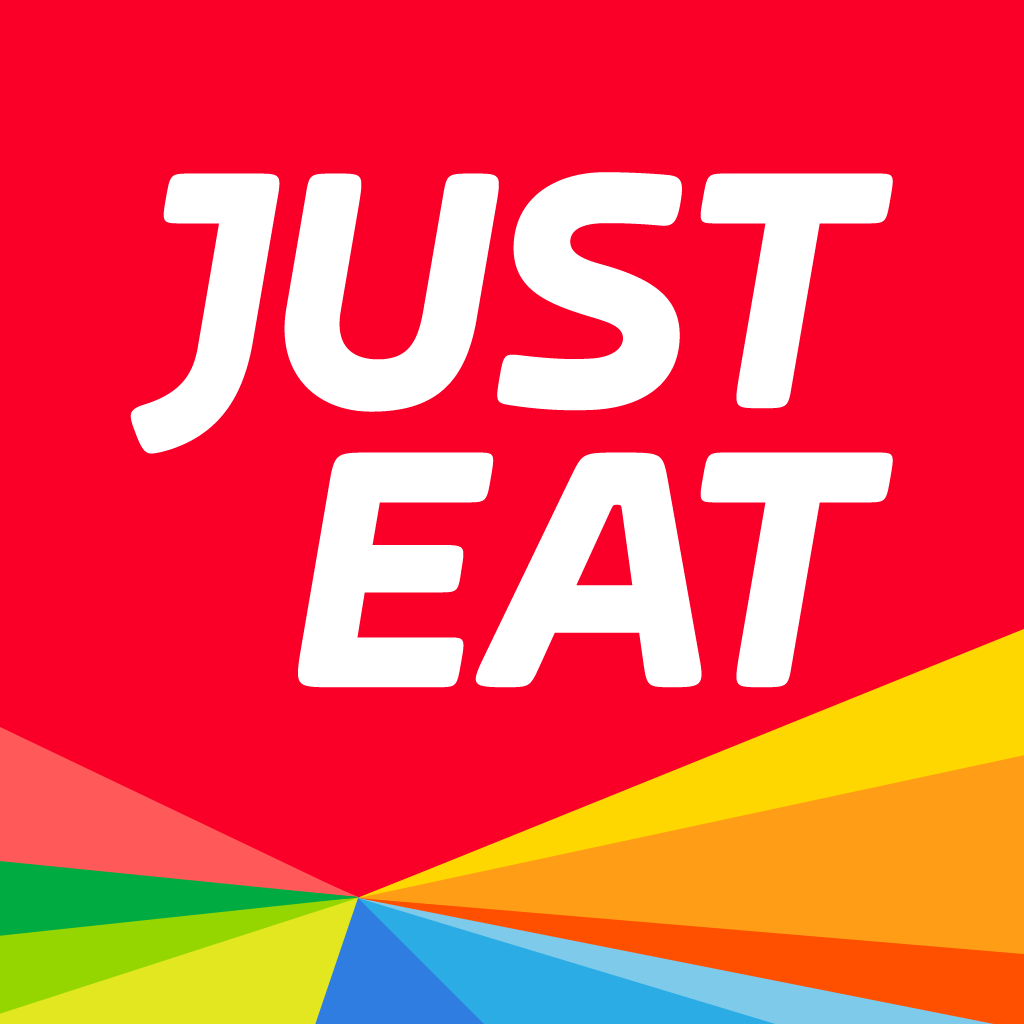 Just Eat tire un trait en France sur ses livreurs salariés - 19/01/2024
Just Eat tire un trait en France sur ses livreurs salariés - 19/01/2024
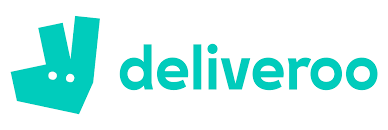 Deliveroo entre sur le marché des traiteurs - 26/09/2023
Deliveroo entre sur le marché des traiteurs - 26/09/2023
 Getir et Gorillas liquidés, 1300 emplois supprimés - 20/07/2023
Getir et Gorillas liquidés, 1300 emplois supprimés - 20/07/2023
 Uber Eats, Deliveroo : la bataille de Paris - 13/06/2023
Uber Eats, Deliveroo : la bataille de Paris - 13/06/2023
